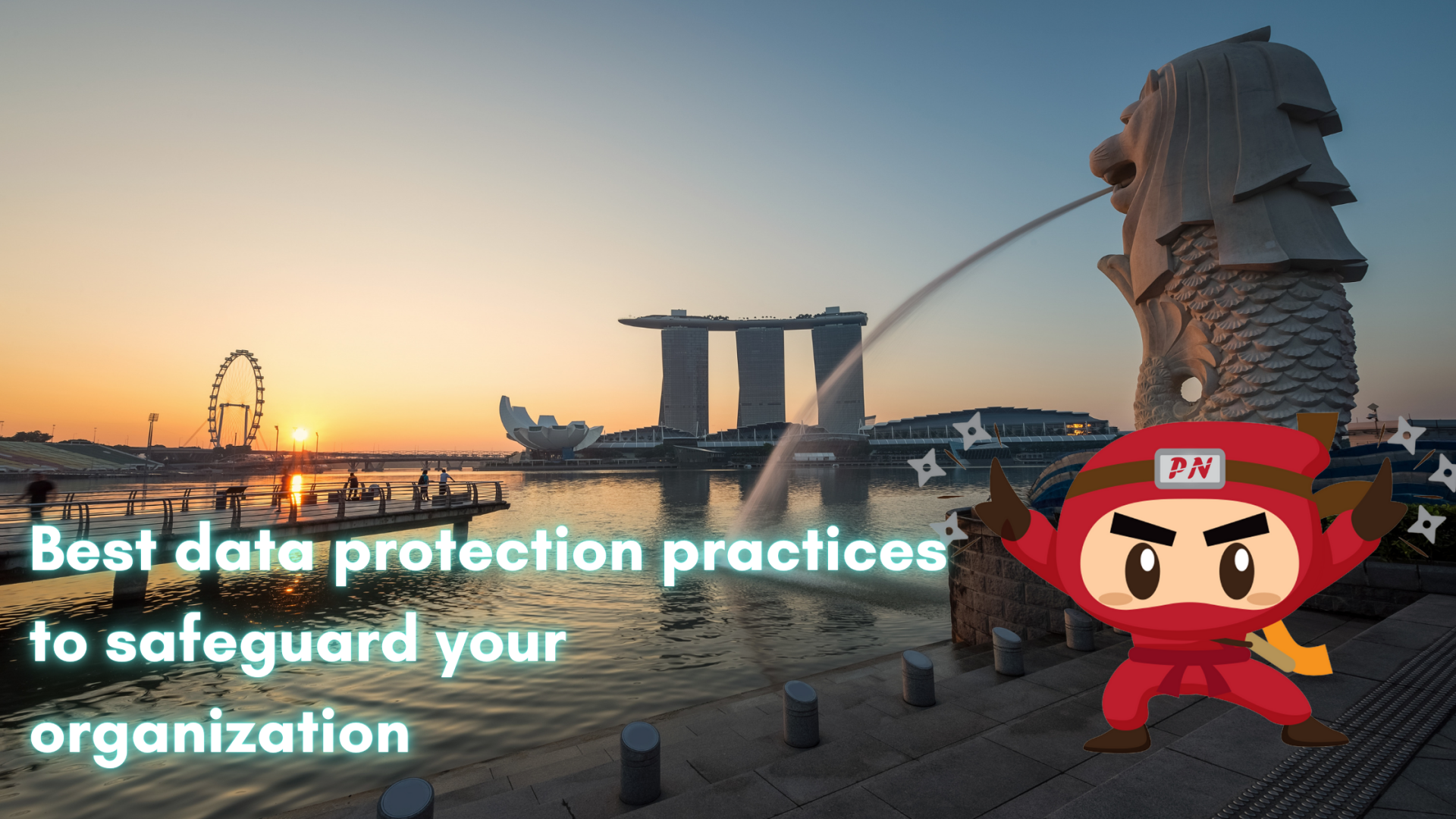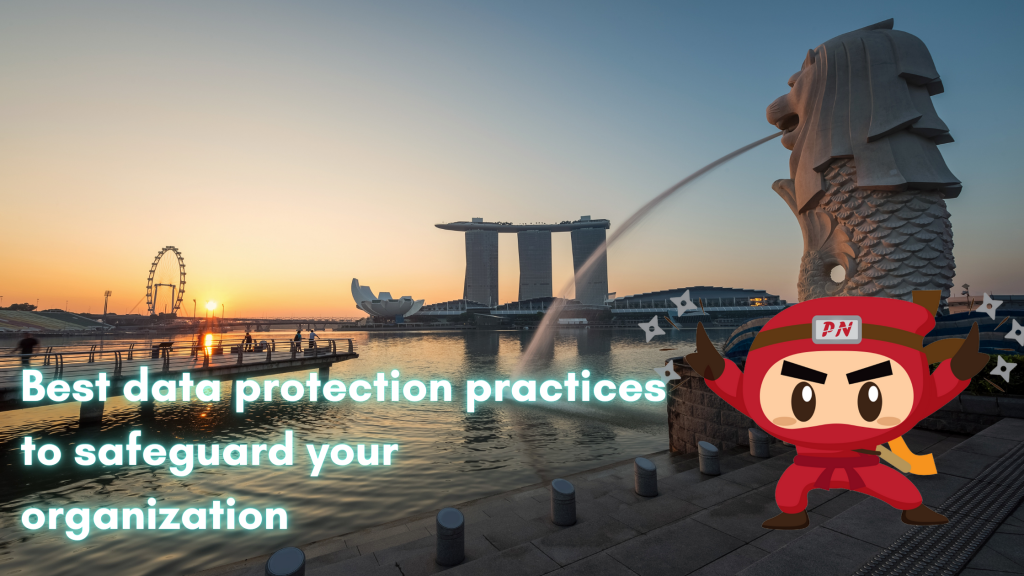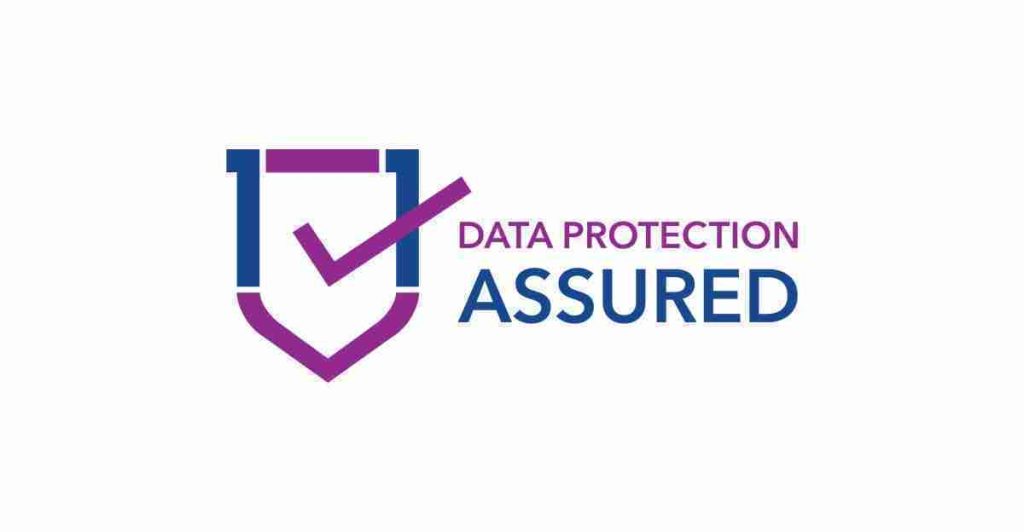KEEP IN TOUCH
Subscribe to our mailing list to get free tips on Data Protection and Cybersecurity updates weekly!







Organizations are gathering and processing more personal data, whether to aid in business choices, anticipate consumer behavior, or just as part of normal company processes. With a large volume of data comes the greater danger of a data breach. No matter how large or small, personal data breaches can cause significant harm to organizations in the form of lost resources, time, and reputation.
In this context, the old saying “prevention is better than cure” is especially applicable to data protection policies. Companies in Singapore have been required to ensure strong personal data privacy policies and practices since the Personal Data Protection Act (PDPA) was adopted in 2012. Aside from providing customers with confidence that their data is well managed and secure, good data management can assist organizations in increasing business efficiency and effectiveness, protect and even enhance a company’s public image, and strengthen the organization’s competitiveness within the industry.

1. Creating a successful Data Protection Management Program with defined policies linked with the PDPA and effectively conveying this to internal and external stakeholders;
2. Have a Data Breach Management Plan in place so that your workers know what to do in the event of a data breach. This plan should include detailed procedures for reporting and responding to a data breach;
3. Ensuring precise contractual agreements outlining your vendors’ data protection obligations, as well as having operational measures in place, such as audits, to guarantee that both the firm and its vendors take the necessary steps to secure personal data.
Also Read: Vulnerability assessment Singapore: The complete checklist
Obtaining the Data Protection Trustmark (DPTM) accreditation is another option for businesses to demonstrate that they have best data protection practices in place.

The DPTM is an enterprise-wide certification provided by the Infocomm Media Development Authority (IMDA) that evaluates a company’s data protection policies, processes, and practices. Based on the Personal Data Protection Act (PDPA), the DPTM integrates worldwide benchmarks and best practices components. It serves as a public-facing emblem for certified businesses to demonstrate that they have strong data protection procedures in place.
Organizations can get a competitive commercial advantage by obtaining the DPTM. According to the PDPC Perception & Awareness Survey 2019, two out of every three consumers preferred purchasing from a DPTM-certified company, while four out of every five businesses preferred doing business with DPTM-certified companies. With increased consumer and business awareness of personal data security, earning the DPTM demonstrates to consumers that your organization has a strong data protection regime in place to safeguard their personal data. The DPTM not only reinforces your organization’s reputation but also increases consumer trust and confidence in your firm, giving your company a competitive advantage.
A third-party certification, such as the DPTM, also provides internal assurance within the organization by validating current processes and identifying potential flaws in your organization’s data protection methods. Organizations might have greater peace of mind that everything is in order after obtaining the suggestions from the assessment and acting on them.
Some critical areas that the DPTM investigates include proper documentation of your data protection processes, as well as queries such as:

As people become more aware of their personal data protection rights and data breaches continue to occur, there will be a greater requirement for businesses to be accountable and demonstrate that they have rigorous data protection policies in place when handling personal data.
Organizations must recognize that being accountable in managing personal data is more than just a question of compliance; it is also a good business strategy that will help them develop their brand reputation and establish consumer trust.
Also Read: What you need to know about appointing a Data Protection Officer in Singapore